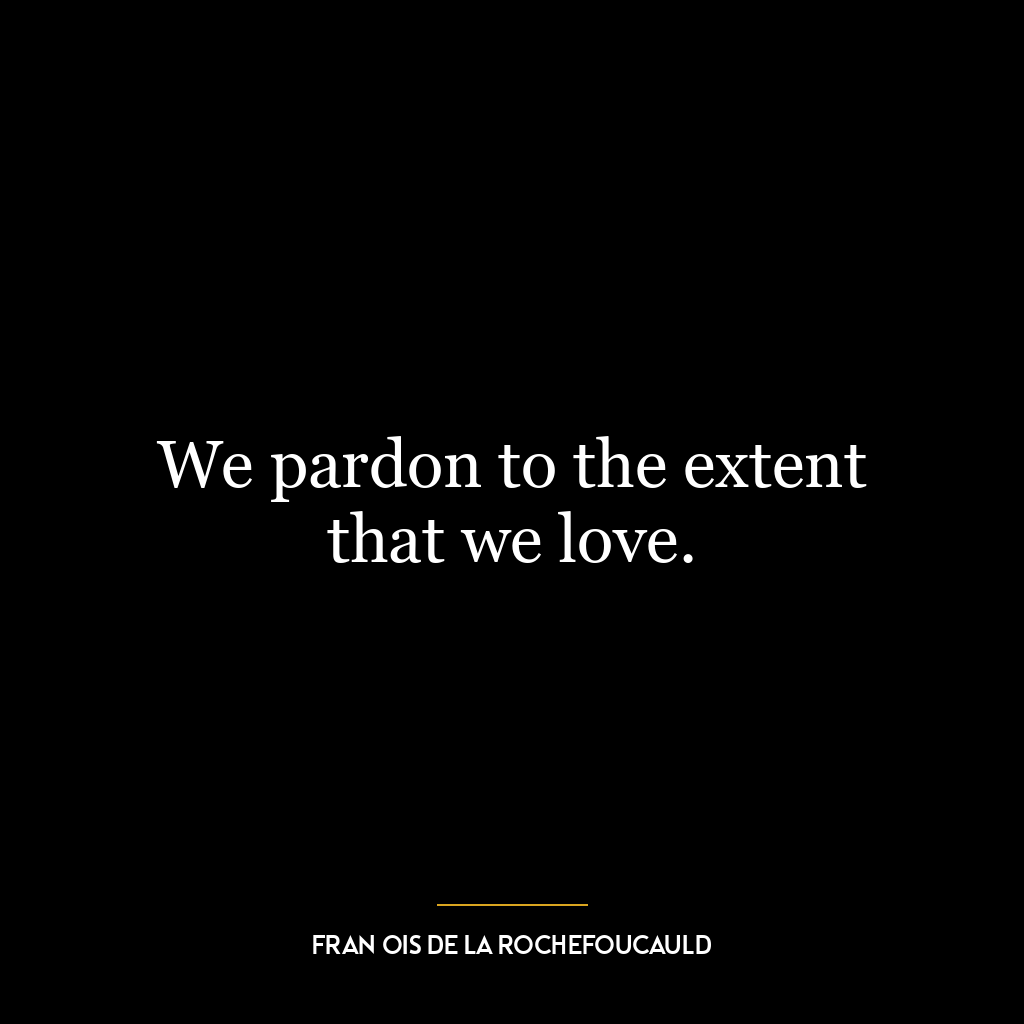“We pardon to the extent that we love” is a profound statement about human nature and relationships.It suggests that our capacity to forgive others is directly proportional to the depth of our affection for them. Simply put, the more we love someone, the more likely we are to forgive their mistakes or wrongdoings.
This quote also implies that forgiveness is not just an act of mercy towards others, but also a reflection of our own feelings and emotional investment in the person we are forgiving.If you deeply love someone, you may be willing to overlook their flaws or mistakes because your affection for them outweighs any resentment or anger you might feel.
Moreover, this quote underscores the idea that forgiveness is not a passive act but an active choice influenced by love. It’s not necessarily about forgetting what happened or absolving someone of guilt, but rather choosing to let go of bitterness and resentment because your love for them surpasses these negative emotions.
Applying this concept in today’s world could mean recognizing that everyone makes mistakes – friends, family members, partners – and instead of harboring grudges or seeking revenge when they wrong us; it could be more beneficial (and healthier) if we choose forgiveness driven by our love for them.
In terms of personal advancement, understanding this concept can help individuals cultivate empathy and compassion towards others. It encourages us to see beyond people’s actions and consider their intentions and also our relationship with them before passing judgment.
Furthermore, adopting such perspective can lead us toward inner peace since holding onto resentment often causes stress and negativity. By learning how much easier it can be to forgive when motivated by love rather than obligation can guide one on a path toward emotional maturity and wisdom.









